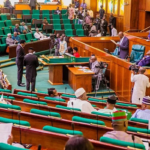In Nigeria, Forex trading is on the increase. Even before 2020, the country had the second-largest fx volume. Now, it is expected to forge ahead in the aftermath of lockdowns. As Nigeria is heavily dependent on oil exports, the crisis has hit it hard. Forex offers a way to make money online, which is vital for millions of consumers. But is this activity taxable?T
The popularity of online tools is surging. The estimated daily volume of Forex trading has reached ₦300-450 million. Tax does apply, but the industry is quite controversial from a regulatory standpoint. Here is why.
The Legality of FX Trading in Nigeria
Trading in the currency exchange is lawful, but only if one does it for oneself. Management of other people’s funds through a broker requires a money manager’s license from the Central Bank of Nigeria. As long as you work for yourself, you need not worry.
It is necessary to use a broker that is authorized and licensed in accordance with industry regulations. Sadly, unlike many countries, Nigeria is yet to develop any comprehensive legal framework for Forex. As a result, retail traders are advised to choose regulated brokers based elsewhere.
International MT4 broker brands are overseen by such watchdog organizations as the FCA in the United Kingdom, the CySEC in Cyprus, and the South African FSCA. Licensing confirms compliance with official norms, including negative balance protection. This means even the worst strategy will never cause losses in excess of the trader’s available balance. In a nutshell, they will never end up in the red.
However, the experience of other countries shows that excessive regulation is also stifling. It hampers the running of the market and harms competition. Today, Nigerians have more freedom to engage in trading as long as they are cautious enough.
Applicable Regulation in 2021
Online currency trading in the country is almost unregulated. Officially, foreign exchange activities are overseen by the Central Bank of Nigeria (CBN). The key financial regulator allows trades through banks or registered brokerages.
Over the past few years, the country has seen a strong influx of foreign brokers, some of which have developed a physical presence in the country. As a rule, you can see all licensing details on a company’s website — usually, in the footer. For example, Forextime, a global broker, is authorized by a number of organizations around the world — the FSCA, the FCA, and the CySEC.
Overall, Forex regulation is a gray area. However, the presence of so many brokers in the country reflects the growing popularity of remote money-making. The activity is increasingly widespread, and its adoption has been spurred by international companies and their promotional efforts.
This does not mean lawmakers do not pay attention to the industry at all. For example, the local Association of Online Forex Trading Agents has been encouraging the government to work out a legal framework. This will give local traders more confidence in brokerage services.
Recently, Forex has been affected by the tightening of general banking policies. The central bank has limited the overseas spending allowance on the naira debit cards to $50,000 per year. This applies to the size of a trader’s deposit unless they use other funding sources.
So, Do You Have to Pay Tax?
On the one hand, any money one makes online should be taxable. On the other hand, traders are not subject to any particular tax deductions. Still, every citizen should file their annual Personal Income Tax Return. Profits from Forex trading are classified as Capital Gains Tax, which means deductions amount to 10%.
The Bottom Line
Despite its scope, Forex trading in Nigeria is largely unregulated. As long as residents trade through regulated international brokers and manage their own funds, they are safe. There is no special Forex tax regulation per se, but the money made this way may be classified as capital gains. Therefore, it should be taxed accordingly upon submission of a Personal Income Tax Return.
WATCH TOP VIDEOS FROM NIGERIAN TRIBUNE TV
- Relationship Hangout: Public vs Private Proposals – Which Truly Wins in Love?
- “No” Is a Complete Sentence: Why You Should Stop Feeling Guilty
- Relationship Hangout: Friendship Talk 2025 – How to Be a Good Friend & Big Questions on Friendship
- Police Overpower Armed Robbers in Ibadan After Fierce Struggle







